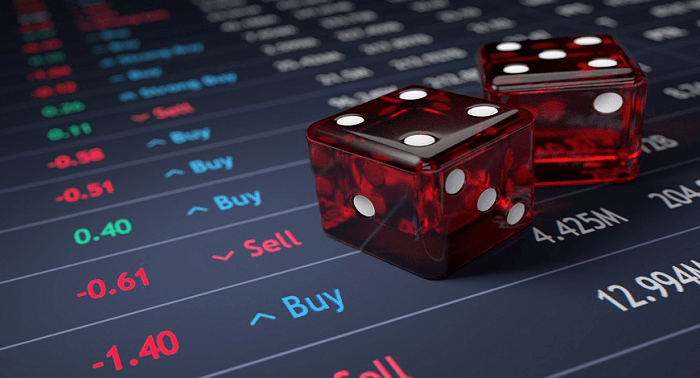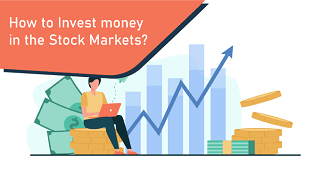What Is the Stock Market, What Does It Do, and How Does It Work?What exactly is the Stock Market?The stock market refers to a group of exchanges where publicly listed company shares can be purchased and sold by people. Such financial transactions occur on regulated exchanges and over-the-counter (OTC) markets that adhere to certain regulations approved by the respective authority. 
People often get confused between the terms "stock exchange" and "stock market" and use these terms interchangeably. However, they are not the same. Shares are purchased and sold on one or more of the stock exchanges that jointly compose the stock market. Understanding the Stock MarketThe stock market brings buyers and sellers of securities together to engage and transact. The markets determine the value of business stocks and act as an indicator of the overall economy. As prominent players compete in the open market, buyers and sellers are assured a fair price, strong liquidity, and transparency. The London Stock Exchange was the first stock market, established in 1773 in a coffeehouse where businessmen gathered to exchange stocks. It was named Buttonwood Agreement because it was signed beneath a buttonwood tree, and it marked the beginning of New York's Wall Street in 1792. The pact, signed by 24 traders, was the first in the United States. In 1817, many traders agreed to rename this venture the New York Stock and Exchange Board. A stock exchange is a tightly monitored and regulated environment. The largest and most significant regulators in the United States are the Securities and Exchange Commission (SEC) and the Financial Industry Regulatory Authority (FINRA). How does the Stock Market function?Stock markets offer a secure and controlled environment where market players can trade shares and other qualified financial products with minimal operational risk. According to the government's directives, the stock markets serve as both main and secondary markets. As a primary market, the stock market allows corporations to issue and sell shares to the general population for the first time through an initial public offering (IPO). This approach assists companies in obtaining the appropriate funds from investors. A corporation divides itself into shares and sells a portion of its stock to the general populace for a fixed price per share. To complete this process, a firm requires a marketplace where these shares may be sold, which the stock market provides. A publicly listed company may issue new, more shares through multiple means, such as rights issues or follow-on offers. In addition, the company may also request to delist or buy back its shares, following certain rules and regulations. Investors typically buy company shares in the belief that the stock's value will grow or that they will get dividend payments or both. This capital-raising procedure is facilitated by the stock exchange. The corporation and its financial partners compensate it for its services. Investors can also use stock exchanges to acquire and sell shares they already possess in the secondary market. What is the purpose of a Stock Market?The stock market supports fair and transparent stock pricing by guaranteeing that all market participants interested in buying and selling securities have access to data for all buy and sell orders. Furthermore, the market ensures that relevant purchase and sell orders are correctly matched. Stock markets must facilitate price discovery, in which the price of each stock is set collectively by all its buyers and sellers. Those eligible and eager to trade should have immediate access to place orders. The market should ensure that the charges are executed at a reasonable price. Stock market participants include market makers, investors, traders, speculators, and hedgers. Long-term investors buy and hold stocks, whereas short traders enter and exit positions in seconds at their choices. A market maker provides market liquidity, whereas a hedger may trade derivatives. What exactly is a Stock Market Index?A stock market index measures the performance of a set of companies that represent a specific industry or market segment, such as the technology, energy, and transportation sectors. One of the following three major indexes is often considered a monitoring factor in analyzing the performance of the US stock market as a whole:
How are Stock Markets regulated?The stock market in most countries is supervised by a local financial regulator, monetary authority, or institute. The Securities and Exchange Commission (SEC) oversees the US stock market. The Securities and Exchange Commission (SEC) is an independent federal organization that functions without regard for political factors. The SEC's primary goal is to protect investors while ensuring fair, orderly, and efficient markets and promoting capital formation. Stock exchange companies are regulated, and the SEC supervises their transactions. Furthermore, to guarantee that all market players are similarly informed, the exchanges impose specific restrictions on listed companies, such as enforcing prompt submission of quarterly financial reports and instant reporting of pertinent company happenings. Failure to follow the rules may result in a trade suspension as well as other disciplinary measures. How to invest in the Stock Market?
For those who want to invest in the stock market, it is easier than they think. The following are the main steps to trade in the stock market:
What are the other types of Markets?The stock market generally includes all the marketplaces and exchanges where equity shares and associated securities are exchanged. Markets exist for other forms of financial assets as well, including the following:
What is the Stock Market's Importance?A free-market economy often includes the stock market. It enables firms to raise funds by selling stock shares and corporate bonds, allowing investors to join in the companies' financial successes, profit from capital gains, and earn income through dividends. The stock market serves as a platform for individuals' savings and investments to be efficiently directed into productive investment possibilities that contribute to the country's capital production and economic progress. Who helps the investor in trading in the Stock Market?Portfolio managers are often knowledgeable experts who invest portfolios, or securities collections, on their customers' behalf. By buying and selling stocks, stockbrokers act as intermediaries between stock exchanges and investors. In contrast, Investment bankers work on behalf of companies and organizations, including private companies seeking to go public through an IPO and corporations planning mergers and acquisitions. The Bottom LineInvesting in the stock market has risks, but with the correct investment methods, it is possible to do so securely and with a minimum chance of long-term losses. Day trading, which is buying and selling stocks depending on market fluctuations, is extremely dangerous. Long-term stock market investing, however, has proven to be a great way to accumulate wealth over time. Any investment carries risk. Likewise, equities are also riskier but potentially more profitable than other assets. While the market's track record of growth suggests that a well-diversified stock portfolio will appreciate over time, specific equities can occasionally experience significant losses.
Next TopicWho Was Milton Friedman
|
 For Videos Join Our Youtube Channel: Join Now
For Videos Join Our Youtube Channel: Join Now
Feedback
- Send your Feedback to [email protected]
Help Others, Please Share









